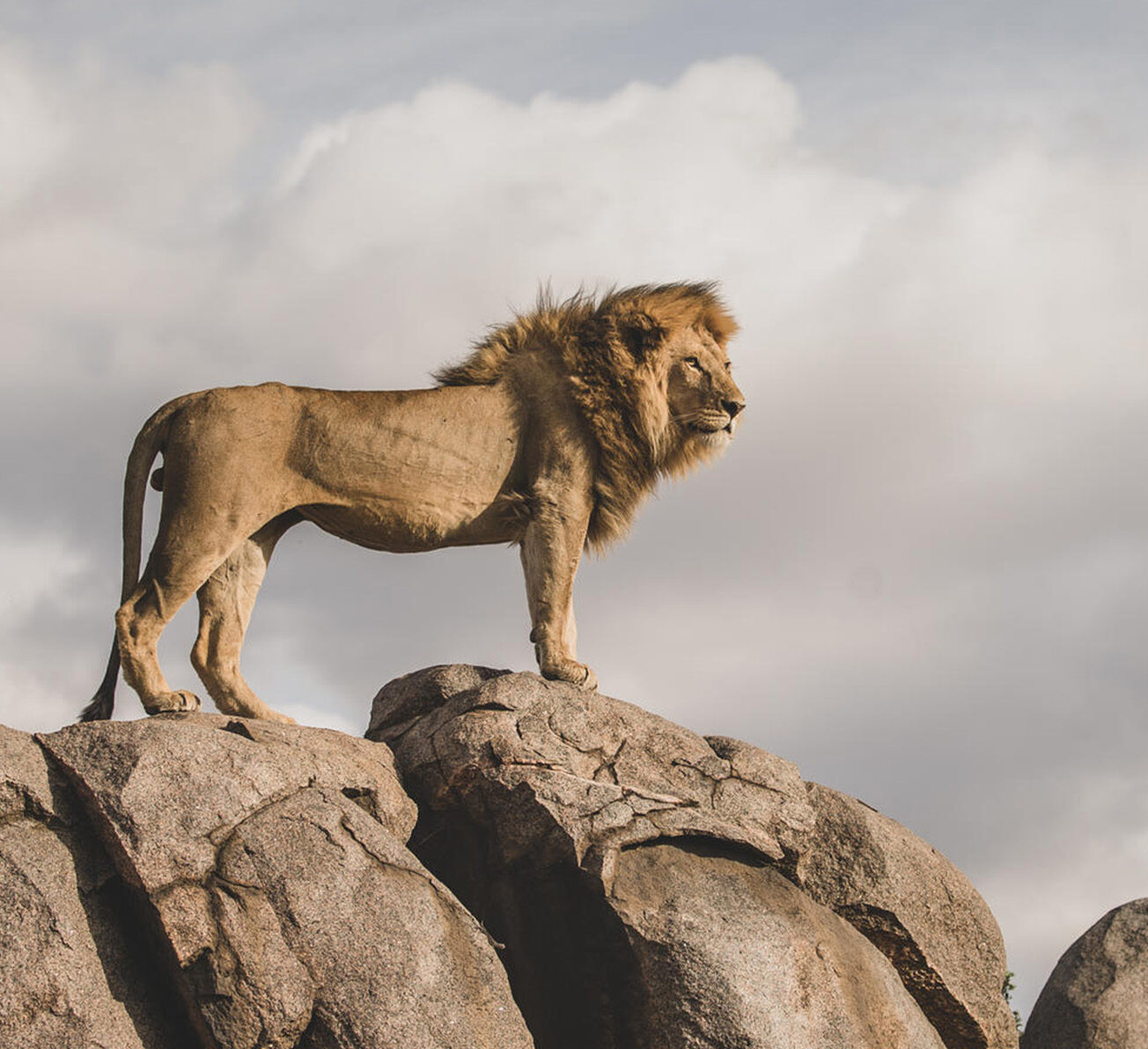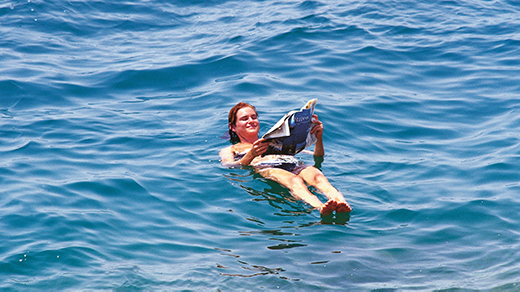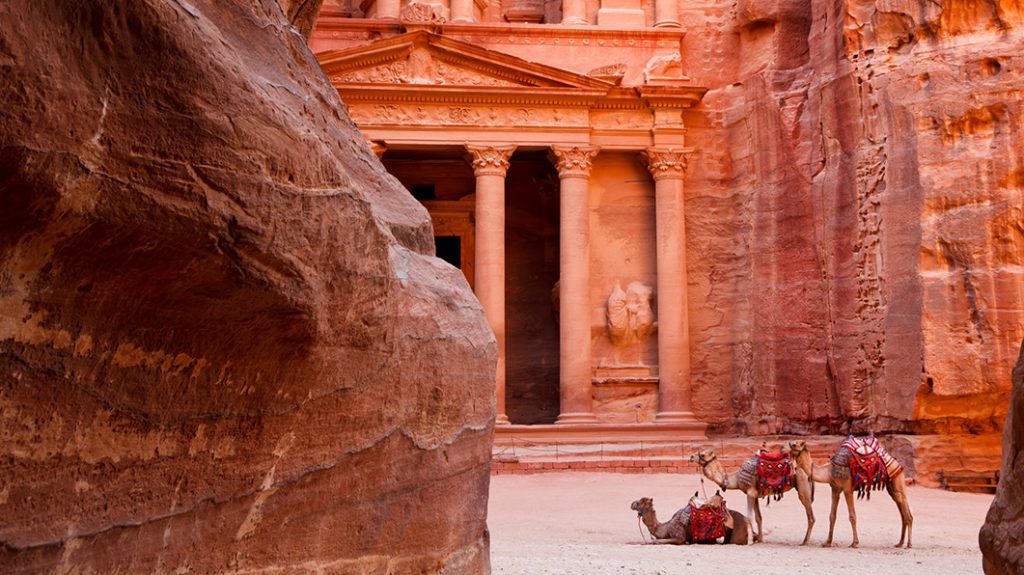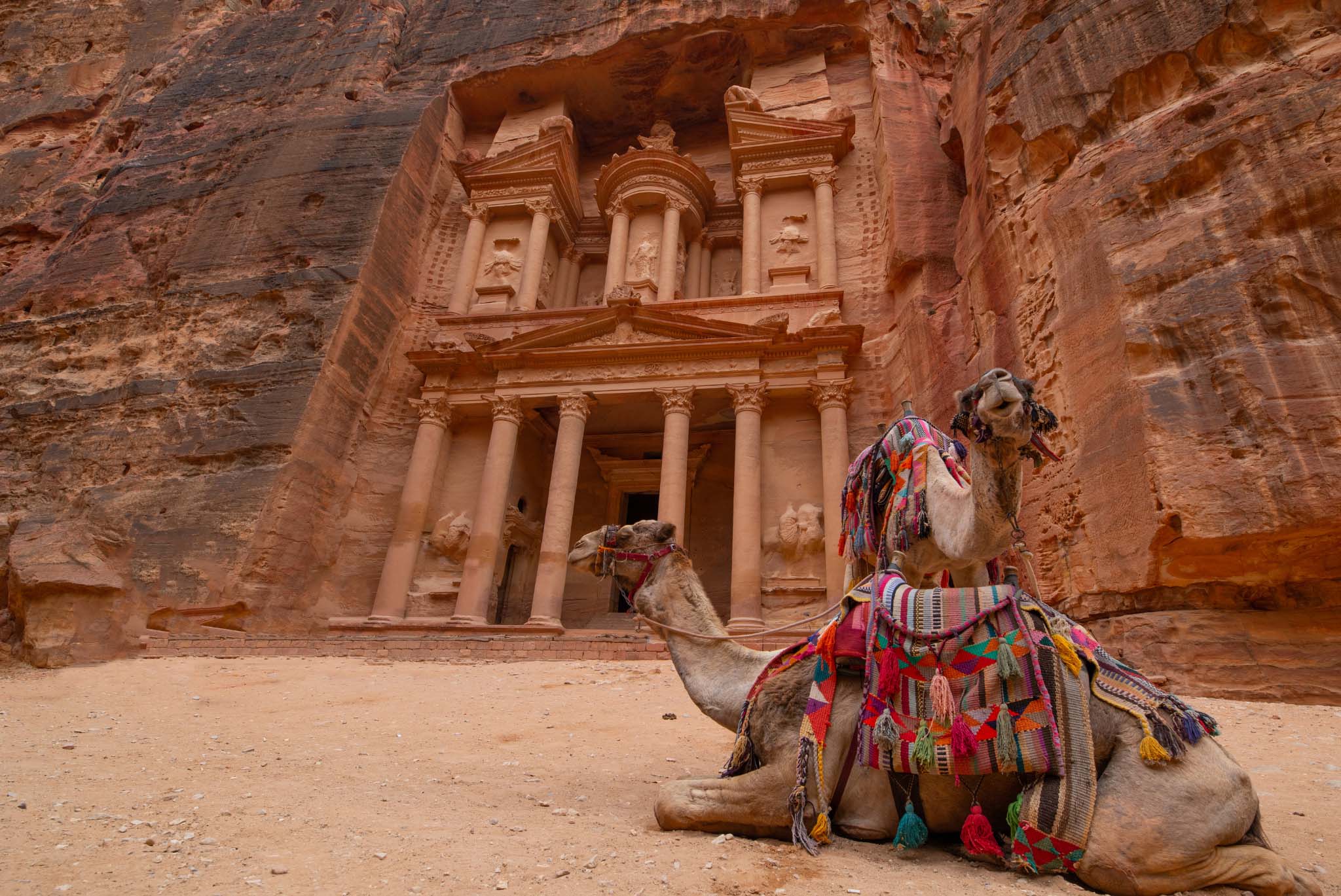
Jordan
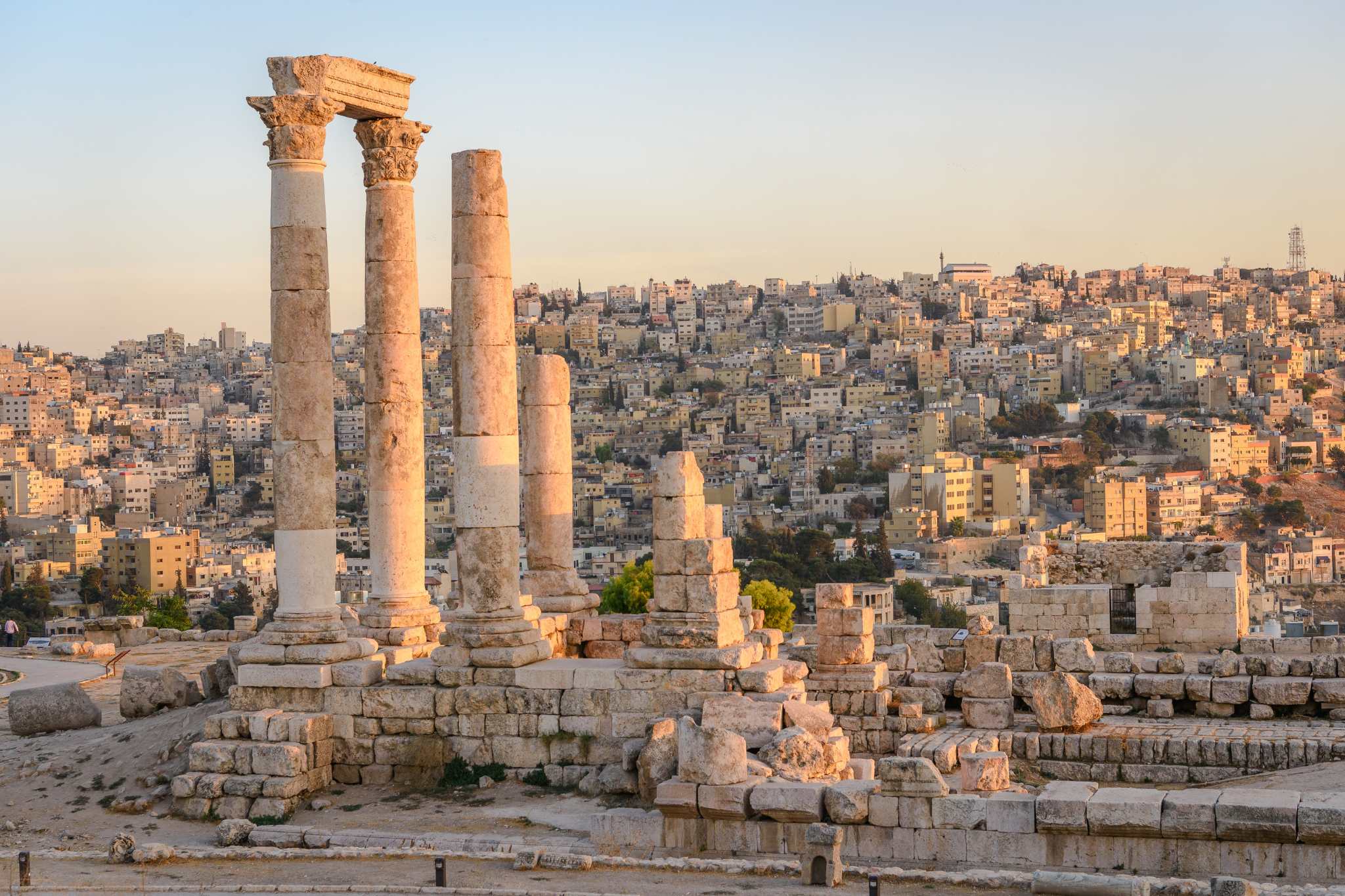
Tailormade Journeys & Group Tours in Jordan
The Hashemite Kingdom of Jordan, which once captivated ancient travellers, continues to inspire today’s explorers. Whether travelling independently on a tailor-made journey or joining a small group tour, this is a country that rewards curiosity. From the stark beauty of Wadi Rum to the lively streets of Amman, and from ancient ruins to the stillness of the Dead Sea, Jordan brings together history, hospitality and a strong sense of place. With quality accommodation, rich cuisine and a wide range of activities, every journey can be shaped to match how you like to travel.
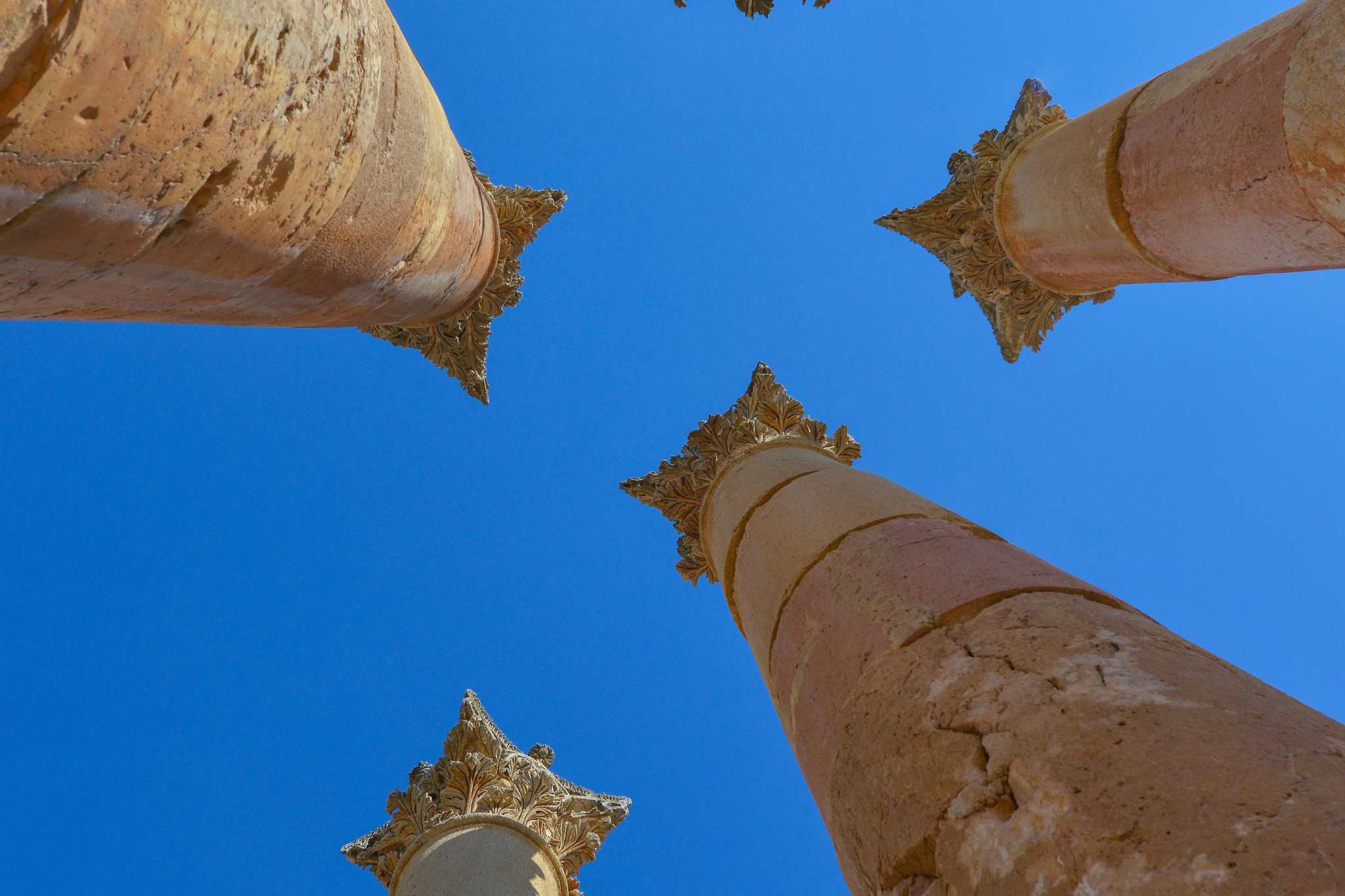
Introducing Jordan
Jordan is a land of deep history and striking natural beauty, where ancient trade routes meet dramatic desert landscapes and vibrant modern culture. From watching herds of gazelles and migratory birds in protected reserves, to camping under the stars in Wadi Rum or hiking through the hills of biblical Gilead, the country is filled with varied and meaningful experiences. Wander through the highlands of Moab and Edom, follow trails once walked by traders and prophets, or float in the mineral-rich waters of the Dead Sea.
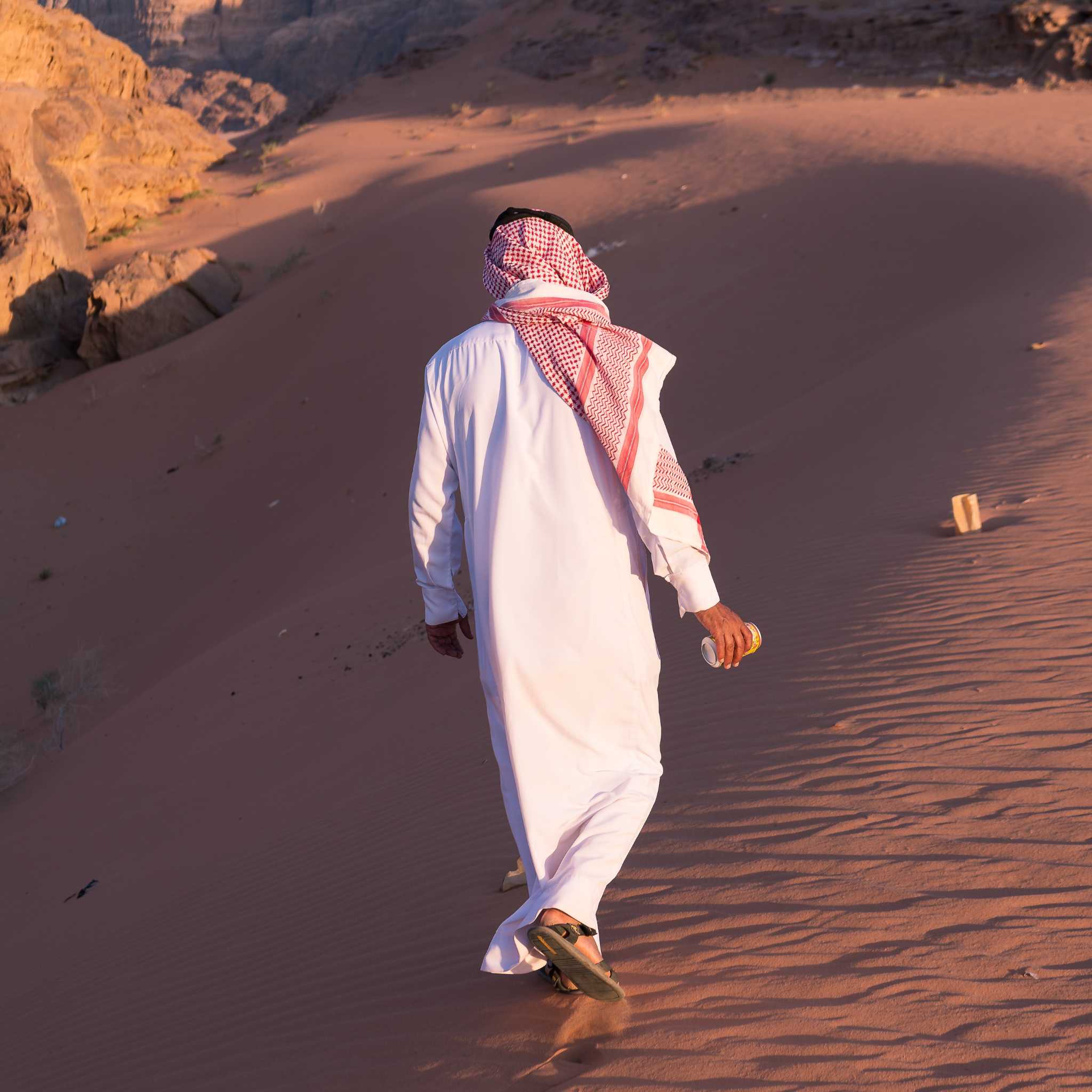
- Full Country Name Hashemite Kingdom of Jordan
- Area 92,300 sq km
- Population 7.73 million (UN 2015)
- Capital Amman
- Borders Saudi Arabia, Iraq, Syria, Israel and Egypt
- Religion Over 94% Sunni Muslim, with Christian and Shi’i Muslim minorities.
- Time Zone GMT + 2 (GMT + 3 between March and October – dates vary)
- Languages Arabic is the official language. English is widely spoken in the cities. French, German, Italian and Spanish are also spoken
- Country Dialling Code +962
Jordan highlights
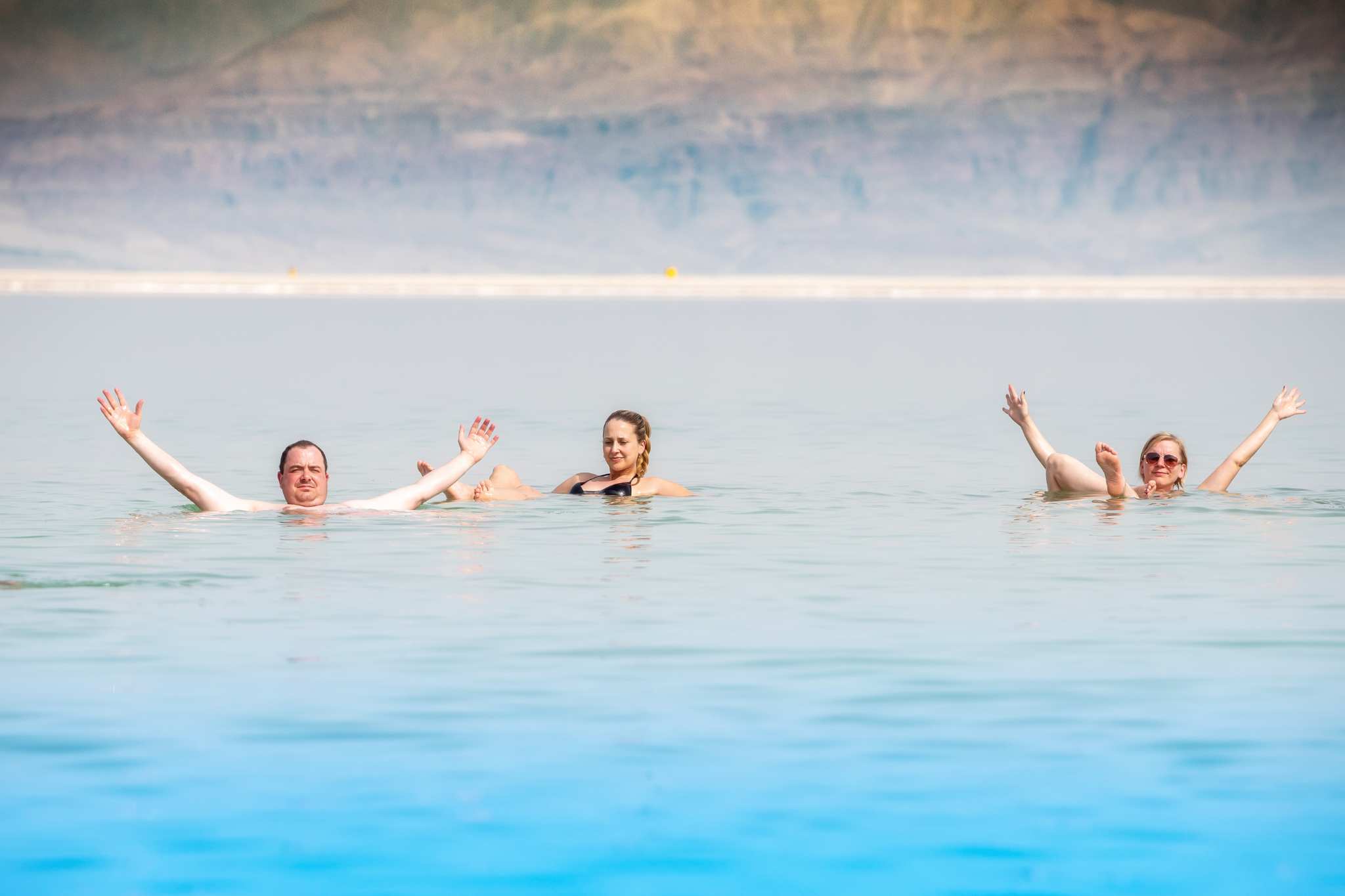
The Dead Sea
The Dead Sea is one of Jordan’s most striking natural landmarks. Set at the lowest point on earth, its still, salty waters are framed by desert hills and quiet shores. Floating here is effortless, the high mineral content making the experience both surreal and restorative. Along the coast, visitors come to unwind, take in the views, and sink into the region’s black mud, long valued for its therapeutic qualities. The Dead Sea is not just a place to see but a place to pause, slow down and take in the silence.
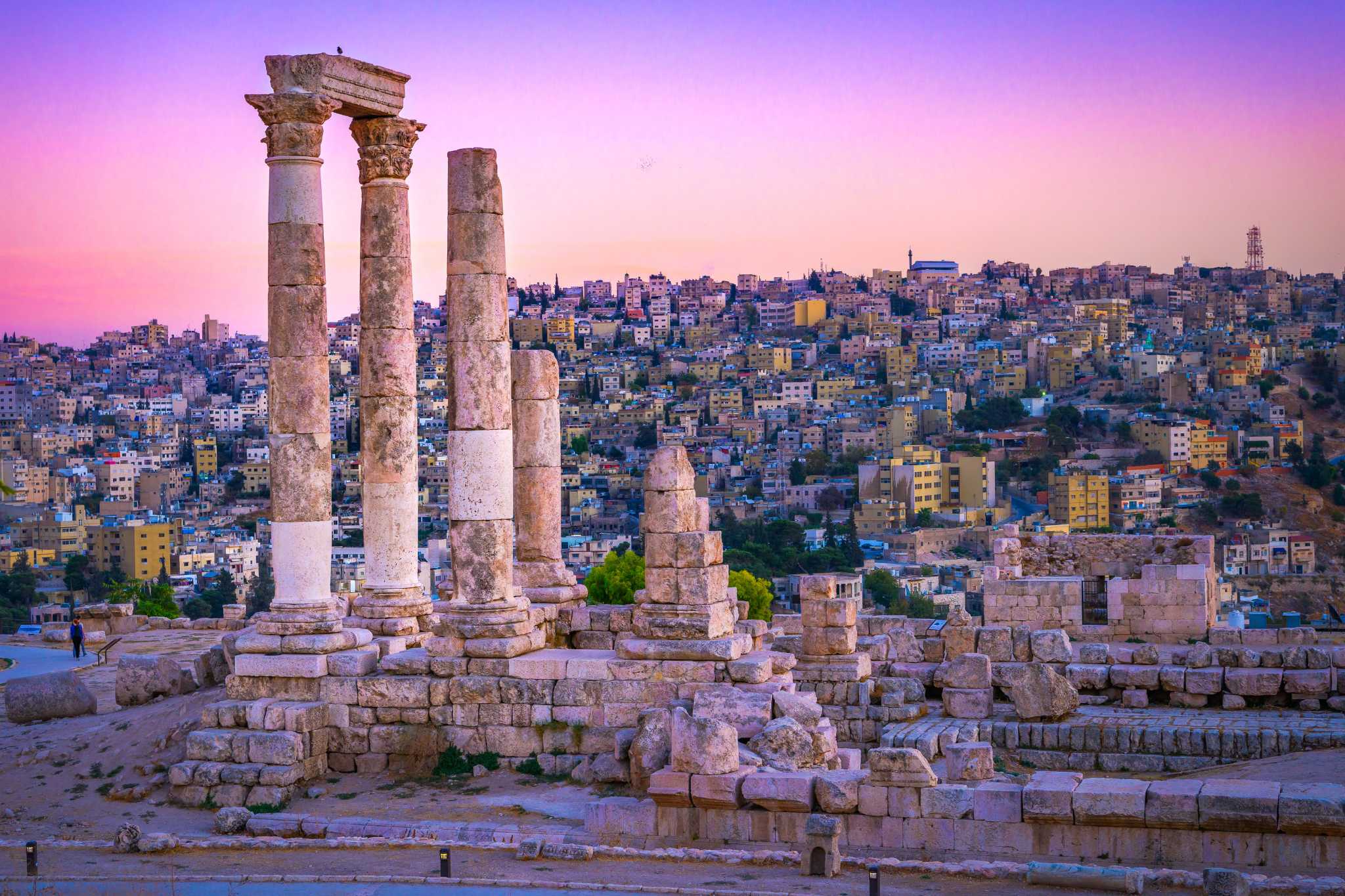
Amman
Amman is a city of contrasts where ancient history and modern life sit side by side. Roman ruins rise among hillside neighbourhoods and lively cafés spill onto streets that have seen centuries of change. The Citadel and the Roman Theatre speak to the city's deep past while galleries, markets and restaurants reflect a contemporary Arab world in motion. Amman is not about grand landmarks but layered moments such as a call to prayer at dusk, the scent of spices in a market or a conversation shared over strong coffee.
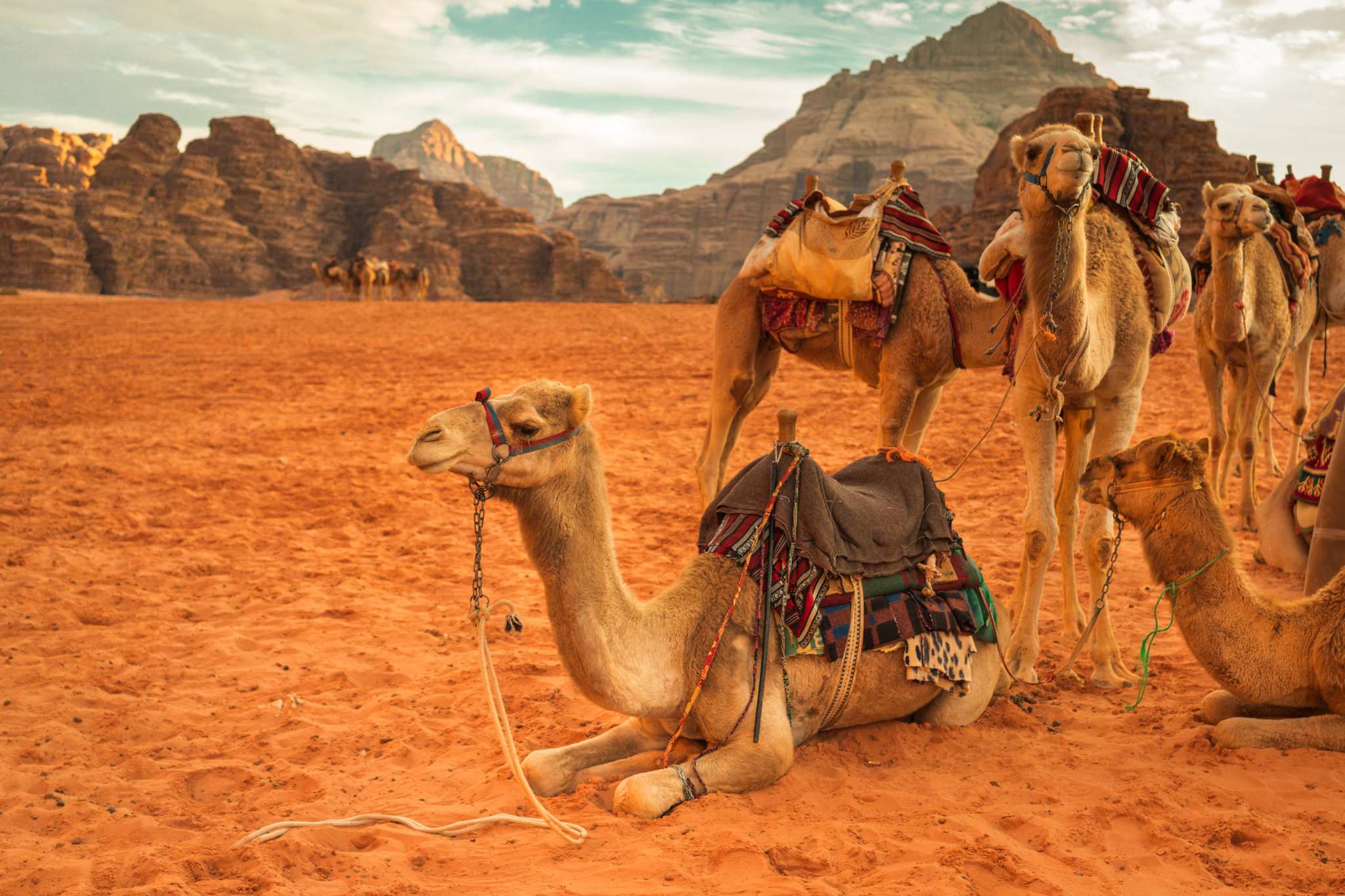
Wadi Rum
Wadi Rum is Jordan’s desert at its most dramatic. Towering sandstone cliffs rise from open red sand plains, shaped by wind and time into something almost otherworldly. This is Bedouin land, rich in silence and space, where nights are spent under stars and days unfold among narrow canyons and ancient rock carvings. Wadi Rum is not just a landscape but a feeling that is vast, still and unforgettable.
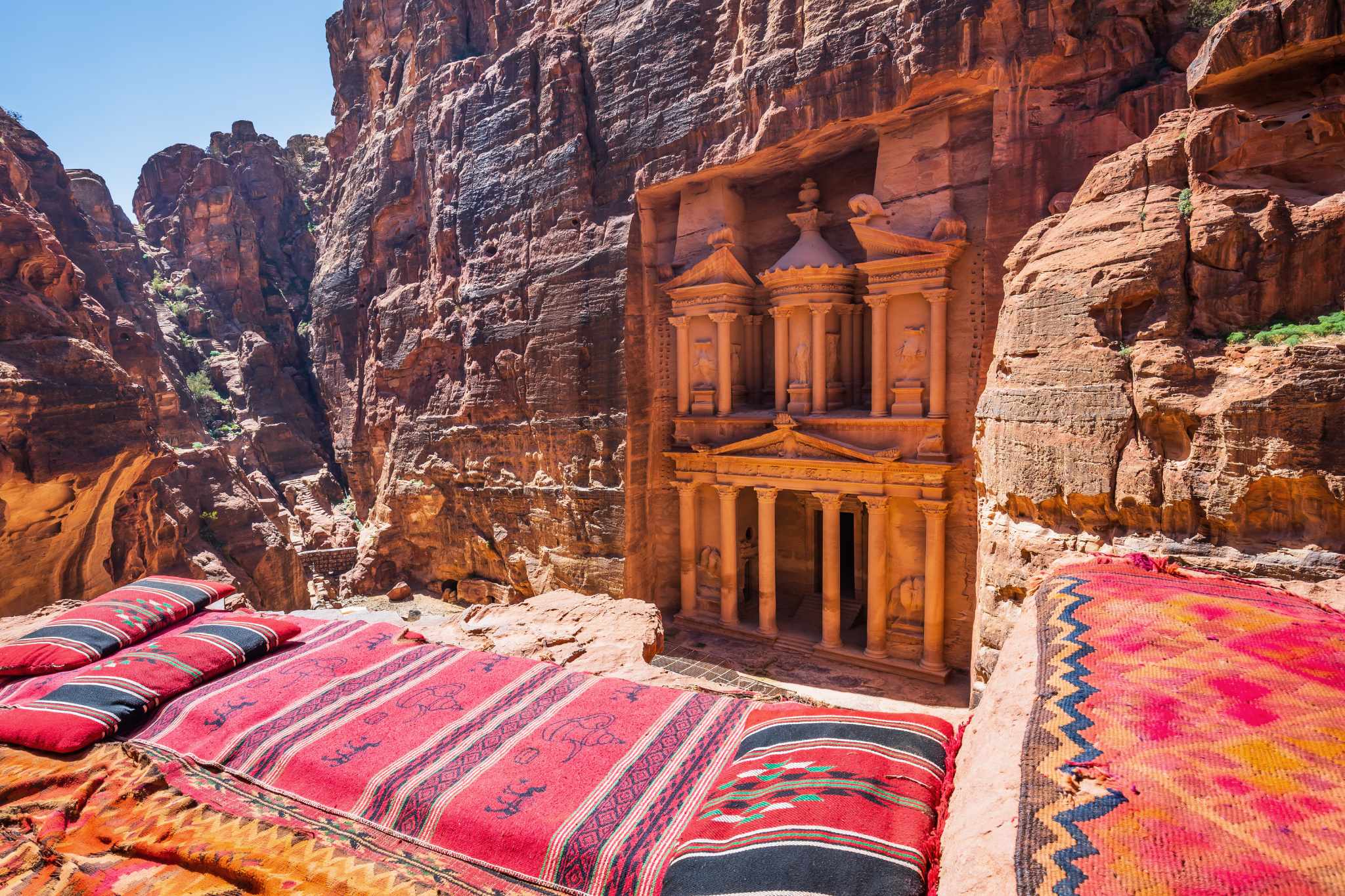
Petra
To walk here is to trace the path of traders, kings and craftsmen in a place shaped by desert, time and human hands. Hidden in the cliffs of southern Jordan, this ancient city was once a thriving crossroads of trade and culture. The approach through the Siq is quiet and narrow until the rock walls give way to the Treasury, leading to a network of tombs, stairways and temples carved deep into stone. More than two thousand years old, Petra still feels alive with history.
Essential trip information
-
Accomodation
-
Accommodations in Jordan include hotels, guesthouses, and desert camps, ranging from reliable tourist standards to internationally recognised luxury properties. City hotels in Amman, Petra, and Aqaba provide modern facilities, while boutique hotels offer a more intimate and stylish experience. In the desert regions, especially Wadi Rum, travellers can choose between traditional Bedouin-style camps and luxury tented camps, combining comfort with the experience of sleeping under the stars.
Very occasionally, circumstances beyond control may require changes to the confirmed accommodation. Efforts will be made to provide advance notice, but up-to-date details about any substitute property may not always be available.
-
Clothing
-
General Information
Jordan’s climate and culture call for practical, modest clothing suited to both the environment and local customs. In cities such as Amman and Aqaba, and at historical sites like Petra or Jerash, casual clothing is appropriate, but visitors should dress respectfully, especially when entering religious sites or visiting rural areas. Women are not required to wear a headscarf, but covering shoulders and knees is recommended.
The desert can be hot during the day and cold at night, so packing light layers is important. A wide-brimmed hat, sunglasses, and sunscreen are essential during the day. A warm jacket is useful for evenings, especially in Wadi Rum.
If you plan to hike in Dana Biosphere Reserve, trek through Petra, or explore canyons such as Wadi Mujib, bring sturdy walking shoes or hiking boots with good grip. Water shoes are useful in areas where trails involve wading through water.
Hotel dress codes are generally casual, though smart-casual attire may be preferred in some high-end restaurants. Laundry is available at most hotels and lodges, but turnaround times can vary, especially on busy itineraries.
Packing List
Essentials
- Reusable water bottle
- Sunglasses
- Wide-brimmed hat or cap
- Camera, charger, and memory cards
- Travel adaptor for Jordan (types C, D, F, G, and J)
- Spare glasses or contact lenses
- Daypack for excursions
Clothing
- Light, breathable clothing such as linen or cotton
- Long trousers and long-sleeved tops for sun and insect protection
- T-shirts or tops that cover the shoulders
- Knee-length or longer skirts or shorts
- Warm jacket or fleece for evenings
- Rain jacket, especially in spring
- Scarf or shawl for sun, dust, or cultural sites
- Comfortable walking shoes or hiking boots
- Water shoes for canyon walks
- Swimwear for the Dead Sea or hotel pools
Health and Safety
- Basic medical kit including plasters, pain relief, antiseptic cream, and Imodium
- Insect repellent
- High-factor sunscreen and lip balm
- Hand sanitiser and tissues or wet wipes
-
Communication
-
Jordan has a reliable mobile network and widespread internet access in most cities, towns, and tourist areas.
If your phone has international roaming enabled, you can connect to local networks, but charges may be high. A local SIM card is a convenient alternative and can be purchased at the airport or in major towns. eSIMs are also supported, allowing you to activate a local data plan digitally without needing a physical SIM. This can be arranged before arrival or on arrival in Jordan.
Wi-Fi is available at most hotels and guesthouses, though signal strength may vary in remote areas such as Wadi Rum or smaller villages. While coverage is generally good, reception can be patchy in desert and mountainous regions.
-
Country Overview
-
Jordan is a country where desert landscapes, river valleys, and historical sites combine. Key highlights include Petra, Wadi Rum, and the Dead Sea. The western highlands have a Mediterranean climate, while most of the country is arid desert.
The population follows Arab traditions and Islamic customs, and visitors are often met with hospitality. Arabic is the official language, but English is widely spoken in cities, tourist areas, and hotels.
Accommodation ranges from city hotels and boutique lodgings to desert camps and larger resorts. Jordan has reliable infrastructure for tourism, making travel between sites manageable and safe. Visitors can explore archaeological sites, nature reserves, and coastal areas with accessible services and facilities.
-
Customs & Beliefs
-
Jordan is a predominantly Muslim country, and visitors should respect religious sensitivity, particularly in the matter of dress and public conduct. Women should wear appropriate clothing. Eating, drinking and smoking in public during the holy month of Ramadan should be avoided, as it is forbidden by the Muslim culture. Alcohol is available only at licensed hotels and restaurants.
Hospitality is deeply ingrained in Jordanian culture. Visitors frequently experience the profound kindness and sincerity of Jordanians. It’s not unusual to be invited into local homes, a practice that stems from the historical need to offer food and refuge to travellers in the harsh desert environment. This enduring tradition showcases the deep commitment to generosity and community that defines Jordanian society.
-
Electricity
-
Voltage & Frequency
In Jordan the general voltage is 230 and the frequency is 50 Hz.
Top Tips
As the sockets can vary a ‘Travellers Adaptor Set’ is recommended. Voltage sometimes fluctuates and whilst power cuts are rare, they are not unknown. It is useful to carry a torch.
Socket Types in Jordan
Type C
Type D
Type F
Type G
Type J -
Food & Drink
-
Jordanian cuisine is a flavorful blend of Middle Eastern and Mediterranean influences, with dishes rich in herbs, spices, and fresh ingredients. Staples include hummus, falafel, tabbouleh, and mansaf, the national dish made of lamb cooked in a yogurt sauce and served with rice. Grilled meats, fresh bread, olives, and locally grown vegetables are commonly enjoyed at meals.
Restaurants and hotels range from casual eateries to fine dining establishments, with many offering international options alongside traditional dishes. Street food is popular and generally safe, with items such as shawarma, kebabs, and pastries widely available.
Bottled water is recommended for drinking, and tea and coffee are widely consumed. Local beverages include fruit juices, laban (a fermented yogurt drink), and traditional Arabic coffee. Alcohol is available in hotels, restaurants, and licensed bars, though it is less prominent due to cultural norms.
-
Health
-
Health requirements vary from country to country. We recommend you speak to your GP or local Travel Doctor for up-to-date information and advice.
-
Insurance
-
Our Tips for Choosing Insurance
Insurance is a mandatory requirement for your travels, and we strongly advise you to secure Comprehensive Travel Insurance at the time of booking your trip.
Make sure you have a thorough understanding of the Terms and Conditions outlined in your policy and that you are well informed about your insurance coverage to ensure that you are adequately prepared for any unforeseen circumstances during your travels.
-
Internal Flights
-
Guidelines
It is advised to request the local operator of the hotel/lodge to reconfirm all onward flights before departure to ensure the accuracy of the flight timings.
While most departure taxes (both domestic and international) are typically included in the tickets, certain regional and private airports may require local payment for taxes.
-
Money Matters
-
Currency
The unit of currency in Jordan is the Dinar (JOD).
You Should Know
Full banking services are available in all the main towns although a commission is normally charged.
Credit cards are not accepted everywhere, so it is not advisable to rely solely on credit cards as a primary source of funds, particularly in places where card usage may be limited, such as remote lodges. It is recommended to inform your bank before using your credit card overseas, and using a PIN number is considered more secure than a signature. In Africa, Visa is the most widely accepted credit card, with larger establishments also accepting American Express and MasterCard. Diners Club is not generally accepted in most establishments.
-
Recommended Reading
-
- A History of Jordan by A.G. Armstrong
- Kingdom of the Film Stars: Journey into Jordan by Annie Caulfield
- Married to a Bedouin by Marguerite van Geldermalsen
- The Making of Jordan by Yoav Alon
-
Road Travel
-
Road Conditions
Please note that road surfaces vary from tarmac, gravel, sand and occasionally vehicles may travel “off road”. Additionally, when exploring remote areas, National Parks, and Reserves, expect rough and bumpy roads, occasionally in poor condition and susceptible to adverse weather conditions.
Road Safety
Established in 1969, Bench Africa has decades of experience in planning safaris with safety as a priority. We recommend travelling with a reputable ground operator that follows strict speed and road safety guidelines. Booking through Bench Africa ensures you are in capable hands throughout your journey.
-
Safety and Security
-
General Safety
- Doors should be locked when driving after dark.
- Don’t walk alone at night in city streets, isolated beaches or remote areas.
- Travellers should not display unnecessary signs of wealth (e.g. mobile phones, money, and expensive jewellery) on the streets.
- Leave all your valuables including passports locked in the room safe where available.
Shopping
Jordan is known for its vibrant markets and artisan crafts. Popular items include handwoven rugs, ceramics, mosaic work, spices, olive oil soaps, Dead Sea products, and traditional jewellery. The souks in Amman, Madaba, and Aqaba, as well as the craft villages near Petra and Wadi Musa, are good places to browse for local goods.
Prices in shops are usually fixed, but haggling is common and expected in markets and smaller stalls. It is considered part of the buying process, especially in places like downtown Amman or souvenir shops near tourist sites. Bargaining should always be done politely and with a sense of humour.
Exporting antiquities is illegal, so avoid buying items that appear to be ancient or archaeological in nature. When purchasing Dead Sea products, check the packaging to ensure they are made locally, as some are imported and simply branded for the area.
Credit cards are widely accepted in hotels and larger shops, but cash is often preferred in markets and smaller stores. It’s a good idea to carry small change, especially when shopping in rural areas or buying from local artisans.
If you’re buying large or fragile items, many shops in tourist areas can arrange for international shipping. Be sure to check costs and ask for a receipt and tracking number if choosing this option.
-
Tipping
-
Tipping Guidelines
Tipping is customary in Jordan, though not as widespread as in the United States or Europe. It is discretionary, a way of expressing gratitude for exceptional service.
To assist with budgeting, the following guidelines are provided in US Dollars:
Driver (per person per full day): $10.00
Guide (per person per full day): $15.00
Camp Staff (per person per full day): $5.00
Hotel Porters (per bag): $1.00
Restaurant (per person per meal): $3.00
Horseback Guides in Petra $5.00
Jeeps in Wadi Rum $3.00
A la carte dining (% of bill): 10% -
Useful Numbers
-
Embassy of the Hashemite Kingdom of Jordan
10 Hobart Place, Canberra, ACT 2606, Australia
Tel: +61 2 6295 9951Australian Embassy in Jordan
41 Kayed Al Armouti Street, Abdoun
Amman, Jordan
Tel: + 962 6 580 7000 -
Visa
-
Do I need a Visa to Travel to Jordan?
We do not provide advice on specific visas as regulations are subject to change and can vary from person to person. Please refer to Smart Traveller for the most up-to-date information. We advise checking visa requirements at the time of booking and again before travelling to keep abreast of any changes that may have occurred.
Visa requirements vary between countries, and it is essential that you acquire the appropriate visa for your journey and ascertain whether it can be applied for in advance or on arrival, in which case you will need the exact physical money. Often, your passport must be valid for at least six months beyond your intended stay, with a minimum of two blank pages (a double page). You will be required to have onward travel documents and sufficient funds. It is advisable to carry photocopies of all important documents.
It is your personal responsibility to confirm that your passport is valid, contains the necessary visa, and that you have all required travel documents.
-
When to Travel
-
Climate
Jordan’s climate is diverse due to its varied topography, ranging from the low-lying desert areas to the elevated highlands. Its proximity to the Mediterranean Sea influences the weather, creating a generally pleasant climate year-round. Days are typically warm, while nights can be cooler. The country experiences its main rainfall during the winter months from October to March. These rains are essential, refreshing the landscape and supporting the lush vegetation in the highlands and valleys. Additionally, snow can occur in higher elevations, such as the hills around Amman and northern regions like Ajloun, particularly from December to February, adding a picturesque contrast to the arid landscape.
Bench Africa on Instagram
